Systemic
Racism is a systemic part of American society. From the first chattel laws to present-day police brutality, racism is at the very core of who America is. Systemic’s goal is to explore aspects of race and racism in America. The aim is to educate and explain the intertwining of race as a systemic part of American culture. We hope each episode enlightens and drives you to help work towards an anti-racist future.
Episodes

Monday Mar 31, 2025
Clean Water Access
Monday Mar 31, 2025
Monday Mar 31, 2025
Imagine pulling water out of thin air. It’s actually not that far fetched. Have you ever seen condensation on a cold bottle on a hot day? Well, what you’re seeing isn’t coming from the cold beverage. It’s the warm moisture in the air interacting cold surface and creating water. That’s a crude and basic version of what Moses West, of the Moses West foundation, and his Atmospheric Water Generation (AWG) technology are doing. West, a former army ranger turned water innovator, is revolutionizing water access. His groundbreaking technology pulls pure clean water directly from the air, offering a sustainable solution to water scarcity in communities plagued by contaminated groundwater. In this episode of Systemic, I sit down with Mr. West and hear stories from Puerto Rico, Texas, and Flint Michigan. In each, we learn how the AWG technology can produce thousands of gallons of clean water daily, powered entirely by solar energy. Making it a profitable and sustainable solution for many communities. Beyond the AWG technology, we look further and discuss how systemic racism, environmental injustice, and infrastructure have historically disenfranchised marginalized communities of color worldwide.
West shares his personal journey from military service to water innovation, highlighting the critical need for educational outreach and technological solutions to address global water challenges. His vision extends beyond his invention, it's about empowering communities and creating sustainable pathways for survival in an increasingly hostile environments. While born in the US, West, as he says, was “raised across continents” and this global perspective, coupled with his early exposure to global inequality and human resilience have shaped his humanitarian mission.
Moses West Foundation - http://www.moseswestfoundation.com/ Email - apollo@moseswestfoundation.org Instagram - @MosesWestFoundation BlueSky - @awgwater.bsky.social
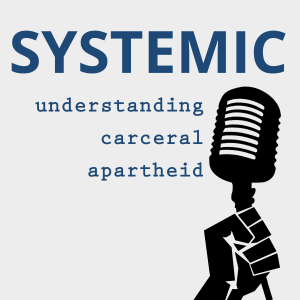
Tuesday Jan 07, 2025
Understanding Carceral Apartheid
Tuesday Jan 07, 2025
Tuesday Jan 07, 2025
In this episode of Systemic, our host Dan Kimbrough welcomes back guest Brittany Friedman, professor and now author of the forthcoming book "Carceral Apartheid: How lies and white supremacist run our prisons.” In the book, professor Friedman's research exposes the parallel systems of control that operate both outside and inside the prison walls - what she calls a "carceral apartheid." Through her research, analysis, and touching personal narratives, she shows how the dehumanization of marginalized communities has been maintained, institutionalized, and manufactured over generations.From police corruption to the suppression of black militant movements, our conversation exposes the insidious ways in which white supremacy evolved, finding new ways to divide and conquer. Though, through all the misinformation, corruption and violence, at the center of professor Friedman's work and research lies a profound invitation - to dream of a different future and narrative, one grounded in community, healing, and the uncompromising pursuit of true justice.This is an episode for anyone seeking to understand history and ongoing reality of systemic racism in America, specifically our prison system. Her work shows a parallel between how curropt authorities operate inside and outside of our prisons and the effects they have. Prepare to be challenged, enlightened, and inspired to wake up and be part transformative anti-racist change.Find Professor Friedman online at instagram.com/curlyprofessorhttps://x.com/curlyprofessorBuy the bookhttps://uncpress.org/book/9781469683409/carceral-apartheid/https://www.amazon.com/Carceral-Apartheid-Supremacists-Prisons-Politics/dp/1469683407
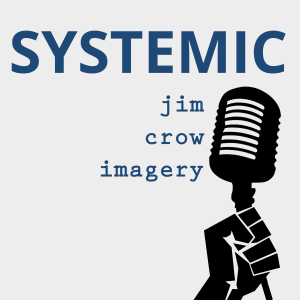
Monday Nov 04, 2024
Jim Crow Imagery
Monday Nov 04, 2024
Monday Nov 04, 2024
When you think about Aunt Jemima and Uncle Ben, what comes to mind? Beloved American food mascots or the caricatures of racist stereotypes for African Americans?
In this episode of systemic, our host Dan Kimbrough sits down with Dr. David Pilgrim, founder and director of the Jim Crow Museum of Racist Imagery. We discuss the toxic legacy of the Jim Crow era - a dark chapter in American history marked by systemic oppression, dehumanizing propaganda, and the weaponization of racist imagery.
Dr. Pilgrim shares his personal journey of collecting these objects of intolerance over the past four decades, and the devastating realizations that fueled his life's work. We'll explore how these hurtful caricatures and stereotypes were used to uphold a horrific racial hierarchy, and discover the lasting impact they continue to have on our society.
But this is no mere history lesson. Dr. Pilgrim outlines his bold plan to expand the museum, using the power of witness, understanding, and healing to confront America's painful past and inspire lasting change. We'll hear about the museum's mission to elevate the stories of African American achievement and resistance, and challenge visitors to consider their own role in building a more just and equitable future.
This is an unnerving conversation that will stay with you long after the episode ends. Join us as we reckon with the ugly truths of our history, and find the courage to create the change we wish to see in the world.
Museum Website - https://jimcrowmuseum.ferris.edu/
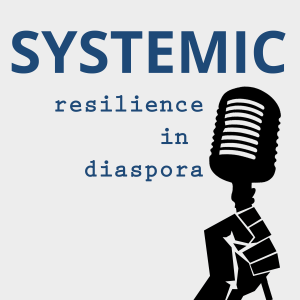
Monday Oct 14, 2024
Resilience in Diaspora
Monday Oct 14, 2024
Monday Oct 14, 2024
In this episode of Systemic, our host, Dan Kimbrough, sits with Romain Muhammad, the founder of Diversify World. Diversify World an agency dedicated to bridging diversity, equity, and inclusion gaps between the corporate world and marginalized communities.
Today we discuss the power and resilience of the African diaspora. Romain has conducted extensive research on the political and cultural impact of Africans in diaspora, and he's here to share his unique perspective.
We'll explore the rich tapestry of the African diaspora, challenging the often Westernized lens in which it’s viewed, and delve into the UK context, where Romain highlights the resilience of the Windrush generation and the emergence of the political blackness movement.
This conversation is a call to action, urging us to engage in open dialogues that foster a better global understanding and collective resistance against injustice.
Join us as we navigate the complexities of identity, home, and the enduring spirit of the African diaspora.
More about Romain:
Instagam -www.instagram.com/romainmuhammad_LinkedIn - https://www.linkedin.com/in/romain-muhammad-diversify/Websites - www.diversifyworld.com/ www.romainmuhammad.com
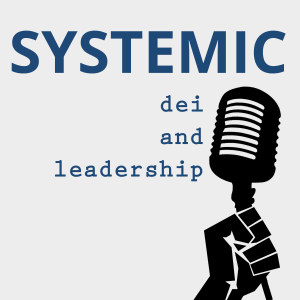
Monday Mar 18, 2024
DEI and Leadership
Monday Mar 18, 2024
Monday Mar 18, 2024
Headlines scream the "decline" of DEI, but here's the truth: most efforts have been performative. We're talking black squares on social media, not dismantling systemic bias.
On this episode of Systemic, our host Dan Kimbrough talks with Farah Bala, a Leadership EDIA (Equity, Diversity, Inclusion, Anti-Oppression) expert. We unpack why surface-level DEI fails and what true inclusion looks like.
Farah Bala's story reminds us that belonging starts with feeling welcome, regardless of background. We'll also hear from others who navigated identity, immigration, and career changes.
Is DEI dead? No, but the performative efforts are gasping for breath.
We explore:
Why superficial DEI efforts fail.
How to move beyond outdated practices and have uncomfortable conversations.
Leadership's role in creating lasting change.
Tune in to find out what real anti-bias work looks like.
email - farah@gofarsight.com
LinkedIn - https://www.linkedin.com/company/thefarsightagency/
Website - https://www.gofarsight.com/
#DEI #workplaceculture #antiracism
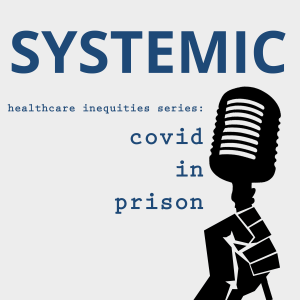
Thursday Jan 04, 2024
Healthcare Inequity Series: Covid in Prison
Thursday Jan 04, 2024
Thursday Jan 04, 2024
hen we think of prison, we often focus on the criminal aspect of the institution. These individuals broke the law and are being punished for doing so. But the punishment, as intended, was to be removed from society for a predefined amount of time, and then, as part of your agreement, you are released back into society. But, while in prison, many prisoners are dehumanized and receive treatment that far exceeds their actual sentence. Much of this is due, primarily, to the physical and psychological designs of the prisons themselves. Humane and dignified treatment was never part of the equation, and when you throw in a worldwide pandemic, how does a facility meant to confine and control people, in small dehumanizing spaces, properly care for those in its charge? On this episode of Systemic our host, Dan Kimbrough, speaks with Professor Brittany Friedman, a sociologist from the University of Southern California about the effects of COVID-19 within our prison system. Professor Friedman discusses the design flaws of the US prison system and how they were exposed during the COVID-19 pandemic. Professor Friedman shares how prisons were never meant to be healthcare facilities and how their punitive culture made containing the virus nearly impossible. She argues the roots of mass incarceration lie in slavery and calls for a complete reimagining of how we address harm in society. This episode of Systemic is sponsored by The Black Equity Coalition. The Black Equity Coalition is a group of experts from diverse fields working tirelessly to address institutional racism and structural impediments that continue to plague Black, undervalued, and underserved communities. Initially focused on responding to the COVID-19 pandemic, the Coalition has committed to working towards racial and health equity beyond the pandemic's eventual end by engaging the disparities in the five social determinants of health for the underserved (Our necessary means of health and survival). Through the collective efforts of physicians, researchers, epidemiologists, public health and health care practitioners, social scientists, community funders, and government officials, the Black Equity Coalition is dedicated to ensuring that vulnerable populations have access to health, well-being, and economic stability. For more information, visit blackequitypgh.org For more information about Brittany and her work - https://www.brittanyfriedman.com/
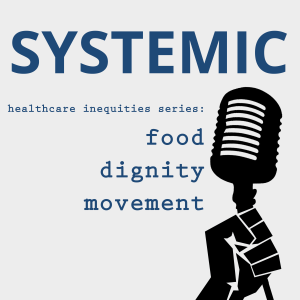
Monday Sep 11, 2023
Healthcare Inequity Series: Food Dignity® Movement
Monday Sep 11, 2023
Monday Sep 11, 2023
In this episode of Systemic, we hear from food activist Clancy Harrison and discuss the issues of food insecurity and The Food Dignity® Movement.
Clancy shares stories from her 14 years of experience from a nutritionist to fighting hunger, and explains The Food Dignity® Movement's approach of centering their work around other's lived experiences. We learn about the different levels of food security and insecurity and the internal and external stigmas associated with food assistance.
Clancy also discusses some of the systemic roots of inequities in the food system and offers insights from those she's spoken to and worked with on dismantling biases to better empower communities.
As a food equity advocate, registered dietitian, and TEDx speaker, Clancy Harrison challenges the way food insecurity is approached and discussed. She is the founder of the Food Dignity® Movement, a strategic program for leaders who want to shift how they approach nutrition outreach by making healthy food access a priority with dignity. Currently, Clancy is an advisory board member for the Pennsylvania American Academy of Pediatrics Food Insecurity EPIC program, Ambassador of the National Dairy Council, and a past President of the Al Beech West Side Food Pantry where she has served over 4 million meals during the COVID-19 pandemic. You can tune in weekly with Clancy at The Food Dignity® Podcast.
Food Dignity Podcast -
Structural Racism Exists Within the System Supporting Food Access -
https://fooddignitymovement.org/podcast/episode-150-structural-racism-exists-within-the-system-supporting-food-access/
A Case for a Food Bill of Rights -
https://fooddignitymovement.org/podcast/episode-124-a-case-for-a-food-bill-of-rights/
Culturally-Focused Nutrition, a Today’s Dietitian Spring Symposium Feature -
https://fooddignitymovement.org/podcast/episode-109-culturally-focused-nutrition-a-todays-dietitian-spring-symposium-feature/
This episode of Systemic is sponsored by The Black Equity Coalition. The Black Equity Coalition is a group of experts from diverse fields working tirelessly to address institutional racism and structural impediments that continue to plague Black, undervalued, and underserved communities. Initially focused on responding to the COVID-19 pandemic, the Coalition has committed to working towards racial and health equity beyond the pandemic's eventual end by engaging the disparities in the five social determinants of health for the underserved (Our necessary means of health and survival).
Through the collective efforts of physicians, researchers, epidemiologists, public health and health care practitioners, social scientists, community funders, and government officials, the Black Equity Coalition is dedicated to ensuring that vulnerable populations have access to health, well-being, and economic stability.
For more information, visit blackequitypgh.org
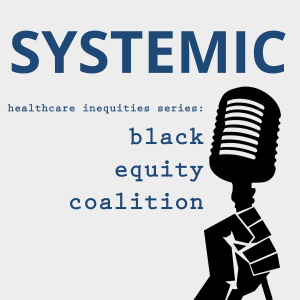
Tuesday Aug 15, 2023
Healthcare Inequity Series: Black Equity Coalition
Tuesday Aug 15, 2023
Tuesday Aug 15, 2023
In this episode of Systemic our host Dan Kimbrough sits down with Cleveland Way of the Poise Foundation and the Black Equity Coalition.
We discuss how the Black Equity Coalition is working to address health disparities and inequities facing Black communities in Pennsylvania. In this episode, Cleveland Way, the Community Engagement Manager with the coalition, discusses their work focusing on COVID-19 vaccinations and beyond. They are partnering with over 150 community organizations and "ambassadors" already serving Black communities to enhance their efforts and provide resources.
Cleveland explains how their equity-focused approach aims to give communities what they need rather than a one-size-fits-all solution. Hear how data collection and a focus on social determinants of health will help continue improving health outcomes in Black communities in Pennsylvania.
To learn more about the Poise Foundation - https://www.poisefoundation.org/
To learn more about the Black Equity Coalition - https://www.blackequitypgh.org/
To follow up with Cleveland - cway@poisefdn.org
This episode of Systemic is sponsored by The Black Equity Coalition. The Black Equity Coalition is a group of experts from diverse fields working tirelessly to address institutional racism and structural impediments that continue to plague Black, undervalued, and underserved communities. Initially focused on responding to the COVID-19 pandemic, the Coalition has committed to working towards racial and health equity beyond the pandemic's eventual end by engaging the disparities in the five social determinants of health for the underserved (Our necessary means of health and survival).
Through the collective efforts of physicians, researchers, epidemiologists, public health and health care practitioners, social scientists, community funders, and government officials, the Black Equity Coalition is dedicated to ensuring that vulnerable populations have access to health, well-being, and economic stability.
For more information, visit blackequitypgh.org
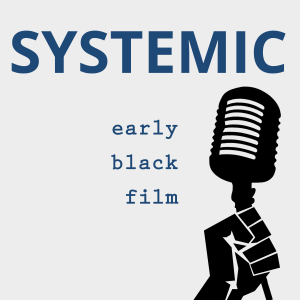
Friday Jul 07, 2023
Early Black Film
Friday Jul 07, 2023
Friday Jul 07, 2023
Hollywood’s representation of underserved and marginalized populations has been under scrutiny since the first film flickered. Authentic storytelling that fully embraces the complexity and vibrancy of any people must be rooted in, and informed by, those people. Early in the 20th Century, film provided a window to the lives, stories, and narratives of those far and wide. And, as we learned from the comic book industry, with great power, comes great responsibility! Unfortunately, many early filmmakers used this power to further spread inaccuracies and hatred. One of these most famous films is “Birth of a Nation,” D. W. Griffith's 1915 adaptation of the 1905 novel, “The Clansmen.” It tells the story of two families dealing with the fallout of the civil war with a very slanted view. To contrast, early Black filmmaker and novelist Oscar Micheaux wrote and directed the 1919 film “The Homesteader,” which chronicled life for Black Americans during post-civil War, but from an authentic perspective, offering a counter-argument to Griffith and the work of other filmmakers at the time. In this episode of Systemic, our host Dan Kimbrough sits down with Dr. Charlene Regester from the University of North Carolina, Chapel Hill. Dr. Regester teaches in the Department of African, African American, and Diaspora Studies, and her work focuses on early black film history, including black filmmakers, actresses, actors, and performers.Our discussion looks at the life and works of Oscar Micheaux and how we almost lost them; the film-going and artistic experience for Black people in the early 20th century; and the lessons filmmakers and society as a whole should learn from these early efforts.
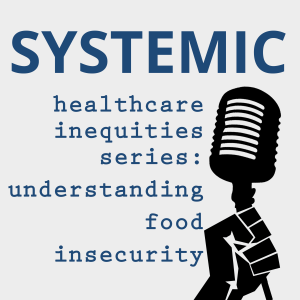
Monday May 01, 2023
Healthcare Inequity Series: Understanding Food Insecurity
Monday May 01, 2023
Monday May 01, 2023
On the episode of Systemic our host, Dan Kimbrough, sits down with Dr. Angela Odoms-Young, an Associate Professor, and Director of the Food and Nutrition Education in Communities Program, in the Division of Nutritional Sciences at Cornell University
Her research explores social and structural determinants of dietary behaviors and diet-related diseases in low-income and Black/Latinx populations and centers on identifying culturally appropriate programs and policies that promote health equity, food justice, and community resilience. Dr. Odoms-Young has over 20 years’ experience partnering with communities to improve nutrition and health and 200+ academic publications, book chapters, and presentations.
We discuss food insecurity from a historical and holistic standpoint, examining how many social determinants of health tie into systemic insecurities and barriers for many communities, not just those of color.
To reach Dr. Odoms-Young - odoms-young@cornell.edu
This episode of Systemic is sponsored by The Black Equity Coalition. The Black Equity Coalition is a group of experts from diverse fields working tirelessly to address institutional racism and structural impediments that continue to plague Black, undervalued, and underserved communities. Initially focused on responding to the COVID-19 pandemic, the Coalition has committed to working towards racial and health equity beyond the pandemic's eventual end by engaging the disparities in the five social determinants of health for the underserved (Our necessary means of health and survival).
Through the collective efforts of physicians, researchers, epidemiologists, public health and health care practitioners, social scientists, community funders, and government officials, the Black Equity Coalition is dedicated to ensuring that vulnerable populations have access to health, well-being, and economic stability.
For more information, visit blackequitypgh.org
Asst. Editor - Brandon Carpenella
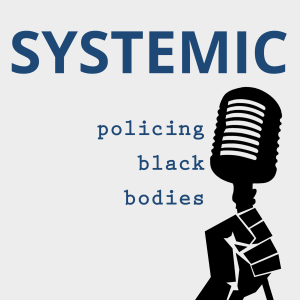
Monday Apr 10, 2023
Policing Black Bodies
Monday Apr 10, 2023
Monday Apr 10, 2023
On this episode of Systemic, our host Dan Kimbrough sits down with Dr. Melissa Anyiwo. Dr. Anyiwo is an Associate Professor of History and Coordinator of Black Studies at the University of Scranton, Pennsylvania. She is also the Co-Chair of the Vampire Studies Area of the National Popular Culture Association. A transplanted Nigerian-British citizen with a background in race, gender, diversity, and visual archetypes, she writes and presents on vampires and their connection to racial and gendered stereotypes. She has published several works on teaching diversity using these images.
Our discussion examines will look at the policing of Black bodies throughout history through the lens of othering. We all know the image of the evil and vile Black man, the sexy and voluptuous Jezebel, or the docile Mamie. But have we given thought to the purpose of these images and how they further an obsession with controlling and monitoring Black bodies?
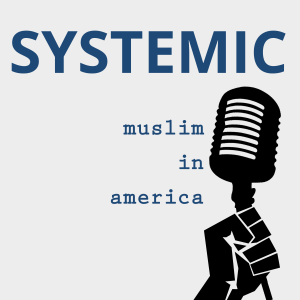
Sunday Jan 01, 2023
Muslim In America
Sunday Jan 01, 2023
Sunday Jan 01, 2023
When looking at American media, images and portrayals of Middle Easterners and Muslims have always had a negative and terroristic focus. Given that the media we consume plays a large part in how we interpret and understand the world around us, the images have always been problematic for how these groups are treated in America.
In this episode of Systemic our host, Dan Kimbrough sits down with Rahimeh Ramezany. Rahimeh is a DEI practitioner with a focus on integrating Muslims and religious identity into DEI practices. She identifies as a multiethnic Shia Muslim and has a Masters's degree in Intercultural communications and a certificate in Advanced Global Leadership. Rahimeh consulting strives towards genuine inclusion and belonging, drawing from her education and lived experiences as a Muslim woman living in the US.
Our conversation looks at some basic tenets of the Muslim faith, portrayals of Muslims in media, the importance of religion in DEI spaces, and thoughts on how we can move forward.
For more information or to book Rahimeh, check out her website www.rahimehramezany.com
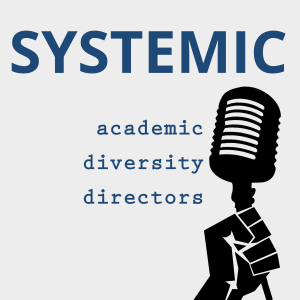
Sunday Jul 31, 2022
Academic Diversity Directors
Sunday Jul 31, 2022
Sunday Jul 31, 2022
Underrepresented students (while we acknowledge that the term includes a wide swath, for this podcast, we're referring to race and ethnicity) entering predominantly white campuses have not only the rigors of higher education to adjust to, but often, also a cultural shift that can leave them feeling lost and alone. While predominantly white institutions (PWI) try their best to diversify there campuses and admit more underrepresented students, what work is being done to retain and graduate these students?
This is where the role of a Diversity Director or Coordinator comes into play. Often these individuals are charged with programming for the wider campus, but also mentoring and creating safe authentic places for these students to have on campus. Throw in recruitment duties, trainings, and assisting with strategic planning and you have a recipe for burnout.
In this episode, our host Dan Kimbrough speaks with Erica Acosta, the Director of Diversity Initiatives at Wilkes University. She holds a BA in Spanish, a MS in Organizational Management and a MBA. She's created diversity awareness and programming at two different universities as well as a Diversity and Inclusion Student Conference. We'll discuss the importance and impact of these positions as well as the difficulties faced in wearing so many hats.
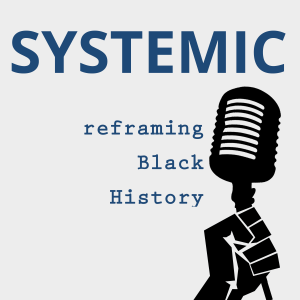
Monday Jan 31, 2022
Reframing Black History
Monday Jan 31, 2022
Monday Jan 31, 2022
Black history month is usually spent retelling the same stories and highlighting the same figures. And while it is important that we don't forget the struggles and sacrifices of the significant Black American heroes, have you ever wondered about the Black community and figures in your own backyard? Who were the local business owners and leaders, and what places hold significant value in your town's Black History?
In this episode, our host Dan Kimbrough and guest Glynis M. Johns, discuss what happens when someone seeks to answer those exact questions.
Glynis is the CEO and Founder of the Black Scranton project. Through her work and research, she's shedding light on the untold and often intentionally hidden story of Black Scranton and proudly saying, "We been here!"
You can follow Glynis's and the Black Scranton Projects work at https://www.blackscranton.org/.
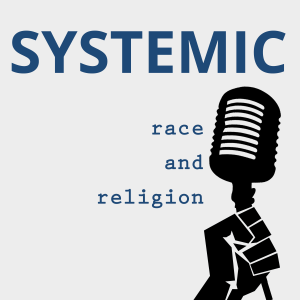
Monday Jan 17, 2022
Race and Religion
Monday Jan 17, 2022
Monday Jan 17, 2022
In this episod,e our host, Dan Kimbrough, talks with Rev. Joshua Brockway, who is an ordained minister in the Church of the Brethren where he serves as the Director for Spiritual Formation and Co-Coordinator for Discipleship Ministries. Rev. Brockway is also an adjunct history professor at Northern Seminary and was recently appointed to the City of Elgin Task Force on Policing.
We'll discuss the role Christianity has played in perpetuating and upholding systemic racism in America, ranging from Columbus setting sail through modern times. We'll then look at some work being done to address race and systemic racism in and around churches and how they can become a bigger part of the bigger discussion.









